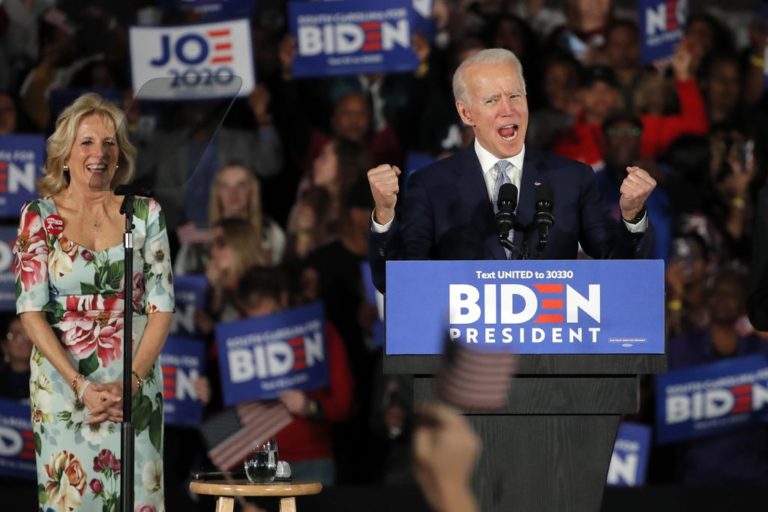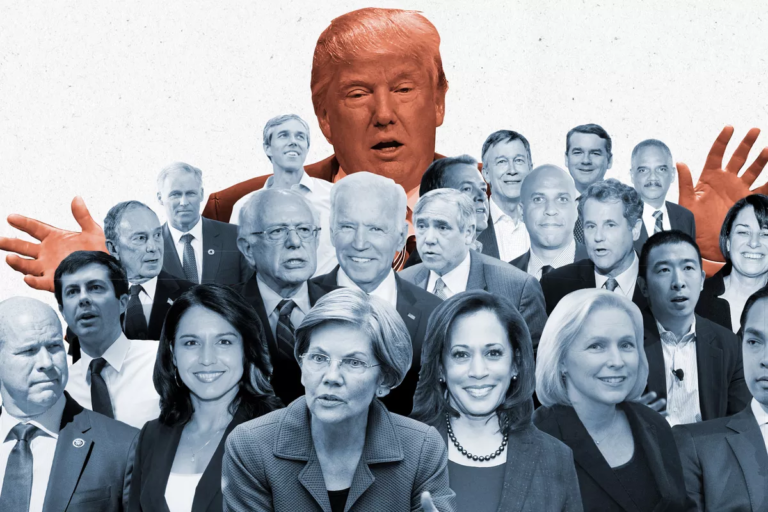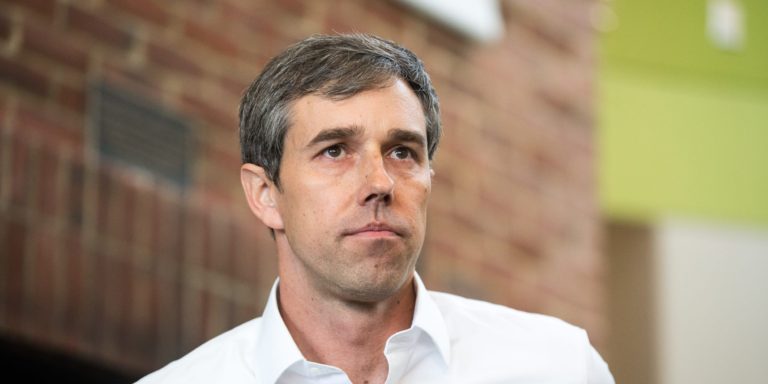Photo courtesy of Getty Images.
For many Democrats who believe in “vote blue no matter who,” electability may be an important quality to look for in a candidate during the primary season. It is a candidate’s ability to win as many votes as possible in order to defeat Donald Trump in November, which can be achieved in various ways, including motivating the left, mobilizing key demographics, and flipping swing voters. This explains why supporters often speak of their candidate as the “unifying candidate,” the one who will be able to win over supporters of the other candidates if he or she becomes the Democratic nominee, assembling a winning coalition against Trump. In other words, the electable candidate.
Discussions and speculations surrounding electability started well before the primaries. Some voters in early-voting states and even supporters at Elizabeth Warren’s campaign events expressed doubts over whether she would find it more challenging to secure widespread support compared with her male counterparts. An Ipsos poll from June 2019 shows that three-quarters of Democrats and independents are comfortable with a female president, whereas only a third of them would say the same for their next-door neighbors. Similar skepticism has also been revealed towards Pete Buttigieg, with media outlets including the New York Times posing questions about whether the country is ready for a gay president. Such concerns over electability are never raised about Joe Biden. However, both Warren and Buttigieg had strong performances in the Iowa and New Hampshire primaries, emerging as two of the top three candidates with Biden trailing behind in fifth place.
Considering the fact that Biden has been portrayed as the electable candidate, his rocky start in the primary race may be surprising to some, but it has made it clear to them that promising support rates fail to show the whole picture. Democratic candidates across the political spectrum have created bases with differing voting behaviors, and this disparity is perhaps most evident between the supporters of Biden and those of Bernie Sanders. Although a recent Emerson national poll presents Biden as the leading candidate with a 30 percent support rate followed by Sanders at 27 percent, it also shows that only 50 percent of his supporters will definitely vote for him compared with 76 percent of Sanders’ supporters. Another important factor to take into consideration is that 87 percent of Biden’s supporters will vote for the Democratic nominee even if it is not their candidate, while only 53 percent of Sanders’ supporters will do so.
Biden’s relative lack of voter loyalty can make him especially vulnerable to supporters’ loss of confidence following his disappointing performance in the early primaries. Despite his campaign’s efforts to reassure nervous supporters, polls suggest that his momentum may have taken a hit, especially among supporters of color. In addition, some of Sanders’ supporters who are unwilling to vote for any other candidate make it uncertain whether Biden would eventually prevail as the Democratic nominee without the support of this sizable proportion of Democrat voters.
Sanders’ Medicare For All bill which lays out a government-run, single-payer health plan would be a complete overhaul of the current healthcare system if enacted, and it is one example of his many policy proposals that aim for structural change. Even though Sanders’ progressive platform has been suspected to be too far left to be palatable for most Democrats, it is not difficult to see why his supporters display such loyalty towards his campaign. As his slogan “Not me. Us.” illustrates, Sanders’ message is a fundamentally populist one, one that is especially powerful for uniting the vast majority of the population towards a common goal. His policies that are radical to some can be revolutionary to others. In comparison, moderate candidates such as Biden that opt for more traditional policies avoid being controversial but simultaneously risk being unimpressive. For example, Biden’s healthcare plan intends to improve upon the Obama-era Affordable Care Act instead of introducing a new system, and it has not received as much attention as the heavily-contested Medicare For All. Moderate candidates may struggle with voter loyalty because their policies lack a distinctive character and can be seen as somewhat interchangeable to those of another candidate.
Besides Sanders’ online army of vocal supporters nicknamed “Bernie bros,” Warren, Buttigieg, and Andrew Yang have all attracted a significant following to be reckoned with despite not being considered electable at the outset of their campaigns. The accomplishments of their campaigns serve as an indication that identity politics may have lost some of its hold on a candidate’s electability. On the other hand, the traditional image of electability represented by Biden and his moderation seems to be becoming increasingly irrelevant to the constantly evolving political scene. Is it still advisable for Democrats to favor the “electable” candidate over their preferred one? The question remains to be answered.



